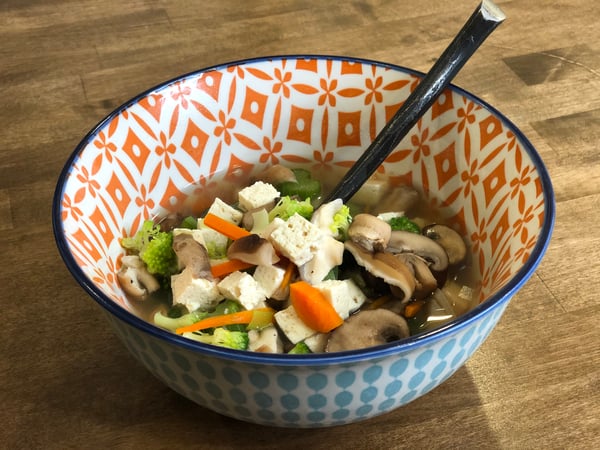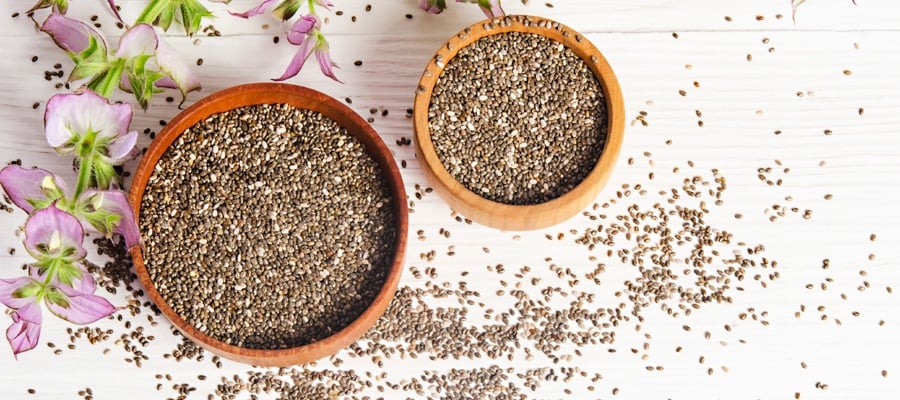 Image copyright | pexels.com
Image copyright | pexels.com
As winter, and the flu season, quickly approach, the question on many people’s minds is, “How do I stay healthy?” Well, the simple answer to that is to have a well-functioning immune system. But that’s a little vague. Let’s dig a little deeper and take a closer look at the body’s miraculous defense system. And believe me, after you learn a little about the immune system, the word “miraculous” is a serious understatement!
According to Marieb and Hoehn (2019), “Every second of every day, armies of hostile bacteria, fungi, and viruses swarm on our skin, and yet we stay amazingly healthy most of the time.”1 Wait, what?! That’s right, there are microscopic organisms all over your body, as well as inside, all the time. Many of them are healthful, but many are not, and your body must decide what to do with the bad guys. Whether or not we become “ill” from these pathogens is up to the vigilance of the invading organisms as well as your body’s ability to respond to and eliminate the threat.2
We have two defense systems working together at all times. First, the innate defense system is always waiting and ready to respond to invaders. The skin and mucosae are first in line. When those are penetrated, the second line of defense steps up. This includes the activation of various specific immune cells all with different tasks. The second defense system is called the adaptive defense system. This system takes much longer to activate but is comprised of the “heavy hitters” who mean business.3 If the immune system is either insufficient or overactive, you are going to have problems.
Now, let’s take a closer look at a few ways we can support our immune system (there are many more!) and ensure we are ready to fight off whatever nature throws at us!
Gut Health
It is said that the immune system lives in the gut. Balancing out the good bacteria and “bad” bacteria is critical to a well-functioning immune system. Research shows that the microbial community in the gut not only keeps things in balance but also influences the susceptibility for disease and disorders.4 The gut is impaired by excess stress, sedentary lifestyle, poor diet,5,6 chronic disease, and digestive issues.7,8,9 The consumption of prebiotics, such as green apples and other starches, feeds the good guys, and probiotics, such as fermented foods, can introduce healthy microbes into the gut.10
Healthy Food
A thriving immune system loves good food! A healthy diet focuses on abundant fresh fruits and vegetables, leafy greens, whole grains, legumes, nuts/seeds, and water while being low in excess salt, sugar, fat, alcohol, and processed foods. But you are not necessarily what you eat, you are what you absorb. This means ensuring your digestive system is working properly. Vitamins that support the immune system include vitamin A and carotenes, vitamins C, D, E, B12, folic acid, other B vitamins, and pyridoxin. Minerals that support the immune system include iron, zinc, and selenium.11 Supplementation may be needed if proper nutrition cannot be achieved through diet alone. Working with a qualified healthcare professional can help identify deficiencies and develop eating and supplementation plans to work with your individual needs.
Stress and Negative Emotions
We mentioned that stress impacts the gut, but it also impacts the overall immune system. Those with depression, negative emotions, and/or high-stress levels have been shown to have an increased risk of cancer and other diseases due to decreased levels of natural killer cells.12 Meditation, aromatherapy, journaling, and physical activity can help to reduce stress. Another way to improve emotional health is to connect with others. We are meant to be social! Loneliness has been shown to over-activate the immune system, which is a bad thing and can lower your levels of antiviral compounds.13 Find ways to connect with others – phone calls, letters, or safe in-person visits if possible.
Sleep
Sleep impacts the immune system, and immune system activation impacts sleep. Did you catch that? What it means is that when you get quality sleep, you help to support your immune system, but when your immune system is in fight mode, you will not likely sleep well. Chronic poor sleep has been linked to a weakened immune system.14 Improving sleep may not be an easy task, however, since quality sleep is essential to so many bodily functions, it is certainly worth putting some effort towards. Aromatherapy may be an easy place to start. Essential oils, either used in a diffuser or inhaled from a room spray, such as lavender (Lavandula angustifolia), have been shown to help reduce stress and anxiety while fighting insomnia and other sleep disturbances.15 Herbal teas, tinctures, or infusions may also be helpful. German chamomile (Matricaria recutita)16, passionflower (Passiflora incarnata)17, and valerian (Valeriana officinalis)18 are a few herbs that can help promote sleep. Be sure to check for contraindications before using herbs and consult with an herbalist for guidance.
Now we are ready to take on the change of the seasons! Check out this immune-supporting miso soup now or keep it on hand for when you feel ill. Either way, it’s quick, tasty, and nutritious! You can use whatever veggies you have on hand and adjust quantities to suit your needs.
Photo courtesy of Lindsay Little
Full Bloom Acres’ Classic Miso Soup
1 cup chopped carrots
1 cup chopped celery
2 cups mixed mushrooms
1 cup broccoli florets
1 leek, white parts only, chopped
1-inch piece of fresh ginger, finely chopped
1 block of firm tofu, drained and cubed
4 Tablespoon miso paste, or to taste
Soy sauce, to taste
Place all veggies in a large pot and cover with water. Bring to a boil. Reduce heat and cook until veggies are tender. Add tofu cubes. Let cool slightly then add the miso paste. Add soy sauce to taste. Serve with rice or brown rice noodles if desired. Enjoy!
References
- Marieb, E.N. & Hoehn, K. (2019). Human Anatomy & Physiology (11th). United States of America: Pearson Education Inc.
- Parkin, J. & Cohen, B. (2001). An overview of the immune system. 357(9270), 1777-89. doi: 10.1016/S0140-6736(00)04904-7.
- Marieb, E.N. & Hoehn, K. (2019). Human Anatomy & Physiology (11th). United States of America: Pearson Education Inc.
- Rooks, M.G. & Garrett, W.S. (2016). Gut microbiota, metabolites and host immunity. Nature Reviews. Immunology. 16(6), 341-52. doi: 1038/nri.2016.42
- Jang, S.-E., Kim, K.-A., Han, M. J., & Kim, D.-H. (2014). Doenjang, a Fermented Korean Soybean Paste, Inhibits Lipopolysaccharide Production of Gut Microbiota in Mice. Journal of Medicinal Food, 17(1), 67–75. doi: http://doi.org/10.1089/jmf.2013.3073
- Poutahidis, T., Kleinewietfeld, M., Smillie, C., Levkovich, T., Perrotta, A., Bhela, S., … Erdman, S. E. (2013). Microbial Reprogramming Inhibits Western Diet-Associated Obesity. PLoS ONE, 8(7), e68596. doi: http://doi.org/10.1371/journal.pone.0068596
- Abdelazez, A., Muhammad, Z., Qiu-Xue, Z., Zong-Tao, Z., Abdelmotaal, H., Sami, R., & Xiang-Chen, M. (2017). Production of a functional frozen yogurt fortified with bifidobacterium spp. BioMed Research International, doi: http://dx.doi.org/10.1155/2017/6438528
- Carasi, P., Racedo, S. M., Jacquot, C., Romanin, D. E., Serradell, M. A., & Urdaci, M. C. (2015). Impact of Kefir Derived Lactobacillus kefirion the Mucosal Immune Response and Gut Microbiota. Journal of Immunology Research, 2015, 361604. doi: http://doi.org/10.1155/2015/361604
- Lee, E., Jung, S.R., Lee, S.Y., Lee, N.K., Paik, H.D., Lim, S.I. (2018). Lactobacillus plantarum Strain Ln4 Attenuates Diet-Induced Obesity, Insulin Resistance, and Changes in Hepatic mRNA Levels Associated with Glucose and Lipid Metabolism. 10(5), 643. doi: https://doi.org/10.3390/nu10050643
- Zubiría, M. G., Gambaro, S. E., Rey, M. A., Carasi, P., Serradell, M. de los Á., & Giovambattista, A. (2017). Deleterious Metabolic Effects of High Fructose Intake: The Preventive Effect of Lactobacillus kefiriNutrients, 9(5), 470. doi: http://doi.org/10.3390/nu9050470
- Pizzorno J. E. & Murray, M. T. (2013). Textbook of Natural Medicine (4th. ed.). St. Louis, MO: Churchill Livingstone.
- Pizzorno J. E. & Murray, M. T. (2013). Textbook of Natural Medicine (4th. ed.). St. Louis, MO: Churchill Livingstone.
- Hawkley, L. C., & Cacioppo, J. T. (2010, October). Loneliness matters: a theoretical and empirical review of consequences and mechanisms. https://www.ncbi.nlm.nih.gov/pmc/articles/PMC3874845/
- Besedovsky, L., Lange, T., & Haack, M. (2019). The Sleep-Immune Crosstalk in Health and Disease. Physiological reviews. 99(3): 1325-1380. doi: 1152/physrev.00010.2018
- Natural Medicines Database. (2019). Lavender. [Monograph]. Retrieved from: https://naturalmedicines.therapeuticresearch.com/databases/food,-herbs-supplements/professional.aspx?productid=838
- Natural Medicines Database. (2019). German Chamomile. [Monograph]. Retrieved from: https://naturalmedicines.therapeuticresearch.com/databases/food,-herbs-supplements/professional.aspx?productid=951
- Natural Medicines Database. (2019). Passionflower. [Monograph]. Retrieved from: https://naturalmedicines.therapeuticresearch.com/databases/food,-herbs-supplements/professional.aspx?productid=871
- Natural Medicines Database. (2019). Valerian. [Monograph]. Retrieved from: https://naturalmedicines.therapeuticresearch.com/databases/food,-herbs-supplements/professional.aspx?productid=870
Disclosure of Material Connection: I am an alumni of American College of Healthcare Sciences, the Institution that publishes this blog. However, all opinions are my own. This blog may contain affiliate links. I am disclosing this in accordance with the Federal Trade Commission’s 16 CFR, Part 255: “Guides Concerning the Use of Endorsements and Testimonials in Advertising.”
This article is for informational purposes only. It is not intended to treat, diagnose, cure, or prevent disease. This article has not been reviewed by the FDA. Always consult with your primary care physician or naturopathic doctor before making any significant changes to your health and wellness routine.
About American College of Healthcare Sciences
 American College founded in 1978, is a fully online accredited institute of higher education specializing in holistic health. Based in Portland, OR; our goal is to make research-driven and science-based holistic health education taught by industry-leading experts accessible to anyone anywhere while still giving students a hands-on experiential learning experience like a traditional college and a strong sense of community, school pride and student bond.
American College founded in 1978, is a fully online accredited institute of higher education specializing in holistic health. Based in Portland, OR; our goal is to make research-driven and science-based holistic health education taught by industry-leading experts accessible to anyone anywhere while still giving students a hands-on experiential learning experience like a traditional college and a strong sense of community, school pride and student bond.
This commitment to our students and graduates reflects in our current survey results that reflect 98% of our students would recommend ACHS to a friend or family member.
We believe education is the most powerful tool for changing an individual and the world around us.
When a person enrolls as ACHS, it is vitally important that they graduate with tools they need to forge their own holistic and sustainable missions, build up their communities confidently and changing the face of healthcare with knowledge.







